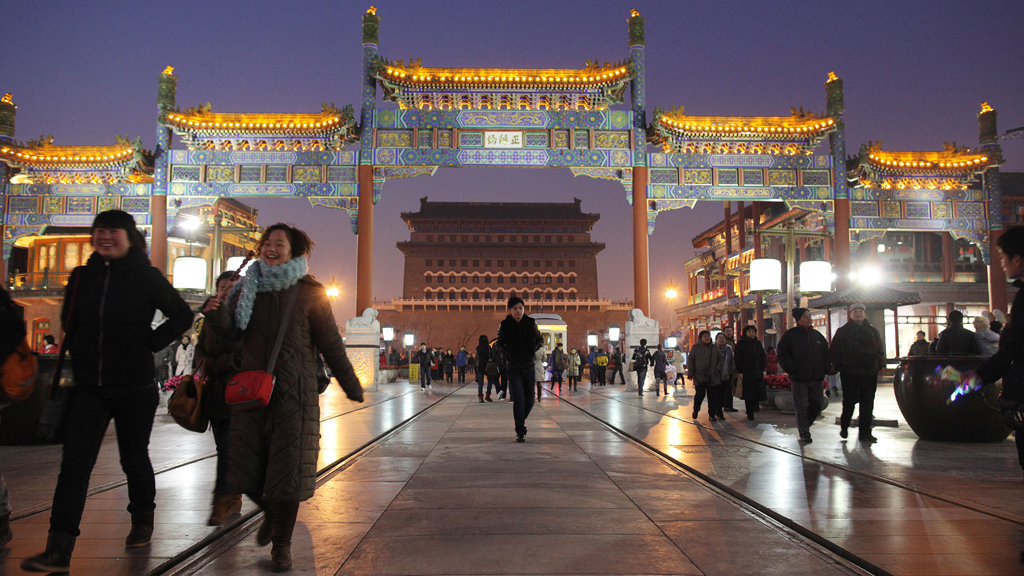Can China deliver a consumer nirvana?
China’s export business is hurting and inward investment is proving harder to find, so the government needs Beijing’s 1.4bn people to go shopping, writes markets strategist Paul French.

For some time now the Communist Party’s aim has been to “rebalance” the economy away from an over-reliance on exports and inward investment towards domestic consumption.
The export business has been hurting, as everyone simply orders less of everything during the recession, while western shoppers have pulled their horns in and cut up their credit cards.
Similarly, the gigantic sums for inward investment, the loans and the commitment to the China market, are a bit harder to find, and sentiment on the great China commercial cure-all is a bit less hardy than it used to be.
So Beijing needs its 1.4bn people to go shopping — a lot of domestic consumption will come from government spending (those high-speed rail lines, new bridges and airports).
But it’s ordinary folk that, added together, could create a huge economic consumer bounce. Economically the party will feel more secure relying on its own population’s spending than fickle foreigners, while politically, an iPhone in every Burberry handbag, locally made cars haphazardly parked on every street, and a Tesco ready meal in every fridge would be helpful.
Everyone’s a winner?
So far this has been the easiest campaign the party has ever run. There are no meetings, no “volunteering” of free time and no naff badges — you just have to go to a gleaming new shopping mall, swipe your plastic and then go get a Big Mac.
Everyone’s a winner — the new middle class get to accumulate stuff and, for now, feel good about consuming. Factories, shops and logistics companies keep hiring, landlords renting, restaurants serving, the ports are busy and the party gets to claim it’s delivering a better life for everyone.
It doesn’t matter who — the newly sophisticated Shanghainese is happy with a BMW and a bottle of wine, while the provincial toiling masses are delighted with their first fridge or plasma screen TV. Even the peasants should be smiling, as they move from poverty to toothpaste, shampoo and instant noodles. What could go wrong?
Well, the cost of it all is what’s going wrong. Just at the moment everyone is poised to really start consuming seriously, living and business costs are spiralling. Consumer goods companies — from food products to Zara suits — are finding wage demands soaring, input costs rising, utility bills, rents and taxes all up and everything from subway fares to cooking oil going up in price.
Consumers are a fickle bunch — you can’t actually force them to shop, they have to believe tomorrow will be brighter, the credit card debt can be paid, and that spending what they’re now saving is OK. And that’s not, right now, a universal opinion among the masses.

Policy changes?
Two possible policy changes could emerge from this congress that will be crucial to consumption. Firstly, there’s the likelihood of a serious, all-encompassing anti-corruption law similar to America’s foreign corrupt practises act.
A key thing will be whether vouchers are included — vouchers for a certain sum of money but with a deadline to spend them — are now the most popular form of “gift” in business and politics. Some Beijing department stores claim (off the record) that over 50 per cent of their high-end sales are through vouchers. No wonder the luxury brands are moaning — no more vouchers, then perhaps (to be honest dirty money, like water, always seems to find a way to spread itself) fewer sales of Rolexes, Mont Blanc pens and luxury handbags.
Secondly, we may see the long-awaited repeal of China’s onerous luxury taxes (that vary, but can double the price of a luxury product in the PRC compared to duty-free Hong Kong or tax-rebate EU). A large amount of money is now flowing out the country due to Chinese tourists “arbitraging” their purchasing and spending abroad.
Word has it that the Ministry of Commerce would love to repeal the taxes and boost high-end spending back home, while Ministry of Finance is naturally loathe to lose any tax revenue and wants them kept in place.
In the old days, when the infamous nouveau riche 1 per cent were the luxury market’s customers, the tax arguably made sense. But now LV, Gucci and Prada are the items craved by ordinary urbanites, and they’re spending overseas to get comparative bargains.
There will be a lot of “big” stories at the congress — power shifts and squabbles, macro economic policy — but any policies that reassure consumers that growth will continue and that the party’s longed-for transition from an investment-driven economy to one that is consumer-driven, will be the one policy area that will affect the majority of ordinary people’s lives.
If they feel the party is not delivering the promised consumer nirvana that a newly wealthy society craves, then the mumblings of discontent among the now increasingly “squeezed” urban middle class could become something Xi Jinping has to think a lot more about.
Paul French is the chief China markets strategist with Mintel, based in Shanghai
-
Latest news
-
Post Office scandal: workers react to ex-CEO Vennells at inquiry4m

-
Election 2024: what voters think of Rishi Sunak announcement3m

-
Post Office inquiry: former boss Vennells admits evidence was false5m

-
‘We are going after every vote we possibly can’, says deputy leader of Liberal Democrats4m

-
What’s the mood in Wales for an early general election?7m

-




